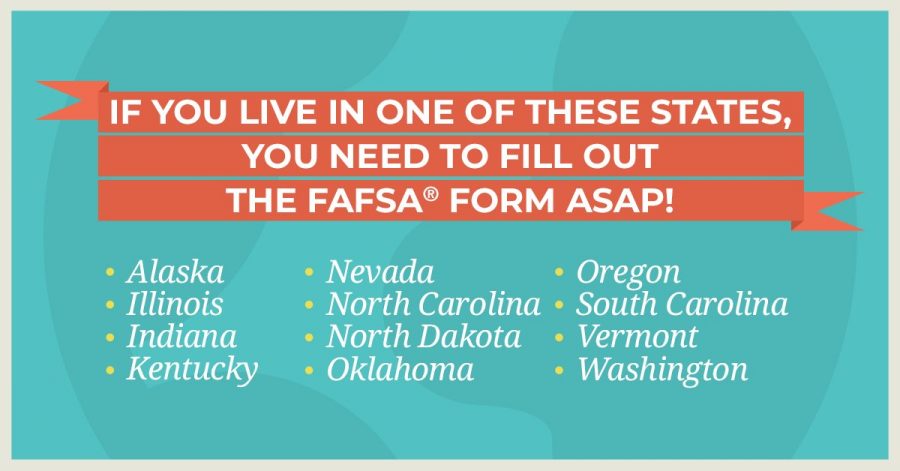Completing FAFSA is now a graduation requirement in Illinois
November 30, 2020
Illinois high school students in the class of 2021 and beyond will be required to complete a Free Application for Federal Student Aid (FAFSA) or an alternative state form produced by the Illinois State Board of Education (ISBE) as part of their Diploma requirements.
Governor J.B. Pritzker signed H.B. 2719 into effect Aug. 2, 2019. Illinois joins Louisiana and Texas in implementing the policy.
The FAFSA application is used by the federal government to decide whether a student is eligible to receive federal grants and loans and to decide whether or not a student is eligible for other assistance from colleges and universities.
According to an article written on August 9, 2019 titled, “New law requires high-school students to complete FASFA,” currently, only 59-percent of Illinois students complete the FAFSA application which ranks the state ninth in FAFSA completion. (Wells)
The bill aims to raise graduation rates to ensure that Illinois students are allocated more federal dollars.
“We want to be the kind of state that makes college affordable so our brightest minds can stay right here in Illinois,” Gov. Pritzker said in a Tweet on his personal Twitter account. “Beginning in the fall of 2020, this law will help give students the freedom to choose the pathway that’s best for them — not the path they’re forced down because nobody gave them the information to explore their options. My administration will do everything in our power to make college an option for any student who wants that opportunity.”
Some school districts are questioning how they will ensure the requirement is fulfilled by each student. As part of the regulation, school districts must also provide the required resources or assistance to complete the FAFSA application.
If the school district decides that a student is unable to fulfill the requirements due to extenuating circumstances, has provided ample opportunities for the student to complete the form, and if the student has met all the requirements for graduation, the student can still earn a diploma.
Parents or guardians can also file a waiver with the school to relieve their child of the requirement.
Bill DeBaun, NCAN’s data and evaluation director told CNBC Make It, “It’s too early to say if mandatory FAFSA policies are the best path forward. If a mandatory FAFSA policy pushes more students to enroll and complete a degree, that would be a positive outcome, DeBaun said. But if it contributes to more students going into debt without obtaining a degree, that would be a “fairly serious concern.”
Supporters of the new law have shared that all of this is intended to show students the possibilities for post-secondary education. Opponents of similar legislation have argued that requiring the FAFSA application could lead to more students accumulating more debt without fully understanding the long-term costs.


